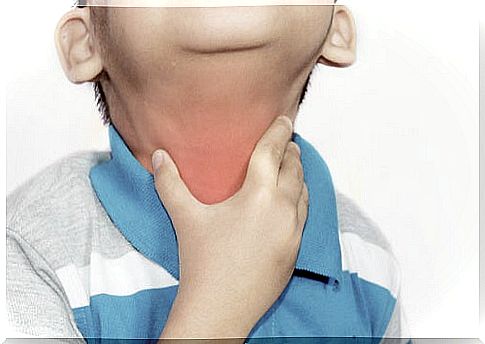What Is Diphtheria?

Diphtheria is an infectious disease caused by the bacteria Corynebacterium diphtheriae . Although it is quite contagious, it is not so frequent that it appears in developed countries, because there is a vaccine to avoid it. It usually spreads in areas where people are not vaccinated.
Diphtheria symptoms
Many of the infected people do not usually have strong symptoms, but in other cases it can even cause death. The disease produces a series of toxins that reach the bloodstream and then pass to the heart, brain or other organs, causing serious damage to them. Some of the symptoms are:
- Cough.
- Fever.
- Hoarseness.
- Wheezing
- Shaking chills.
- Throat pain.
- Increased runny nose
- Difficulty breathing and swallowing.
- Airway obstruction.
- Appearance of thick grayish, dense and thick membranes.
Complications
Diphtheria is a disease that has an incubation period of 2 to 5 days and usually affects vital organs. Therefore, it is extremely important to pay attention to the possible appearance of any of the symptoms. Here are the complications that diphtheria can cause if it is not treated in time:
1. Damage to the nervous system
When the disease affects the nerves, muscle paralysis can occur, making it difficult to walk, swallow, and even speak. In the worst case, the person with diphtheria who has not received medical attention can die from paralysis of the muscles that are responsible for the respiratory process.

2. Heart damage
As we mentioned earlier, this disease produces toxins that reach the bloodstream and affect vital organs, including the heart. It can cause inflammation of the heart muscle, which could lead to arrest. Damage to this organ can be evidenced with the appearance of fatigue and consequent palpitations.
Diphtheria treatment
At the moment of suspecting the existence of the disease, it is important to carry out the treatment immediately, even before having obtained a definitive diagnosis. To treat people with diphtheria, hospital admission is required.
Likewise, the isolation of the patient is essential, because it is easily spread. In more delicate cases, the patient is even required to be transferred to intensive care. Treatment is mainly based on the following:
- Antibiotics
They are responsible for eliminating the bacteria that are present in the body, which causes them to decrease the chances that the disease spreads more easily and other people can be spread. Generally, the antibiotics used are penicillin or erythromycin.
- Antitoxin
It is administered intravenously or intramuscularly and with it the advance of the infection towards the bloodstream is neutralized, which prevents it from reaching the organs. Antitoxin can cause allergic reactions in some people, so allergy skin tests should be performed before giving it.
Diphtheria prevention
The DTaP vaccine prevents diphtheria and other serious diseases. This consists of an inactive toxin that does not cause damage to the body and carries out the production of antibodies capable of neutralizing diphtheria bacteria. Thus they avoid the appearance of the disease.
To be effective enough, children need to be given five doses of DTaP vaccine. For adults, it is necessary to receive the dose every 10 years. In addition, people who may travel to areas where there is a possibility of contagion or have had contact with a person infected with diphtheria, it is also recommended to get the booster dose. This does not apply to those who have been vaccinated in the last five years.

Diphtheria of the skin
This disease can also affect the skin and cause typical reactions of redness, pain and inflammation. Likewise, it can generate the appearance of ulcers covered by a gray membrane.
Like diphtheria that affects the respiratory tract, cutaneous diphtheria can also occur in tropical regions and it is more common for people living in crowded conditions to become infected.
Although diphtheria is a disease that is considered low risk due to the existence of the vaccine, it is important to have information about it because it is very easy to spread and in tropical climates it is usually common. Early prevention could avoid any complications.










